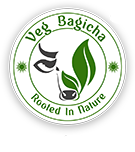
Sustainability and the environment are top of mind for many today. Issues like smog, rising global temperatures, water pollution, and oodles of plastic waste have many concerned. Many people also question how their food is grown whether through conventional or organic means —and if it’s grown sustainably or not. Organic food offers a more sustainable, long term solution for 4 main reasons:
- Organic farming rebuilds soil health and stops harmful chemicals from getting into our water supplies. Water and soil are two extremely important resources necessary for growing food.
- Organic farmers don’t rely on non-renewable oil-based fertilizers and pesticides we may not always have access to.
- Organic farming results in greater biodiversity.
- Organic farming releases fewer greenhouse gas emissions.
Reason # 1: Less Soil and Water Pollution
Soil and water pollution are two major problems today, and non-organic food production is surely a big part of this problem.
Organically grown and produced food uses a lot less of the toxic fertilizers and pesticides that can deplete soils over time and pollute our water supplies. Organic farmers follow strict regulations and work to rebuild soil health naturally.
Reason # 2: Oil-Based Fertilizers and Pesticides-
Many people are also looking food grown without the use of oil-based fertilizers and pesticides. Under organic production, synthetic, oil-based pesticides and fertilizers are not allowed. Rather, organic farmers produce food with natural fertilizers and less energy, and they must follow strict rules about what inputs can be used.
Reason # 3: Greater Biodiversity
It’s no secret that our wildlife is under threat because of chemical agricultural practices. Organic agriculture results in greater biodiversity of plants, animals, insects and microbes. An analysis of 66 scientific studies showed that organic farms have 30% more species on average than non-organic ones.
Reason # 4: Fewer Greenhouse Gas Emissions
Climate change is a serious global threat—with agriculture and food production being major contributors to this threat and the release of greenhouse gases.
Organic farms release a lot less greenhouse gas emissions than non-organic farms. Healthy soils are a major source of carbon storage, and organic farming results in increased carbon sequestration.
The Choice is ClearEating organic is eating sustainably! Organic food is a long-term solution resulting in less soil and water pollution, a decreased reliance on oil-based fertilizers and pesticides, greater biodiversity, and less greenhouse gas emissions.
